Don't wanna be here? Send us removal request.
Text
Importance and Problems Faced By Metal Recycling Industry
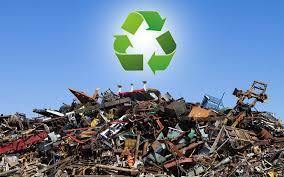
Why is Metal Recycling Important?
Metal Recycling helps decrease expenses and considers the creation of additional reasonable items. With the field of our general public and the improvement of the monetary circumstance, the market for new products is continually developing. On account of the reuse of the recently utilized metals, we can make new things while not overextending the constraints of the accessible assets. The decrease in the number of new mining locales can forestall ecological contamination, save accessible assets, and assist with safeguarding the traditional territory simultaneously.
What are the 10 Biggest Problems Faced By Metal Waste Recycling Industry?
Some of the Biggest Problems Faced By the Metal Waste Recycling Industry
Poorly Trained/Managed Employees- This is a typical issue. Metal Recycling tasks are impacted at some point or another by ineffectively prepared, under-inspired work staff. The truth of the matter is, a large number of these individuals have never been appropriately made due, and don't grasp the assumptions or even the nuts and bolts of their work. That is the reason a trustworthy work group provider ought to constantly obviously make sense of occupation assumptions and afterward really oversee laborers. Workers will be blissful in light of the fact that that is what they truly need, so they can work really hard, and keep their work.
Employee Retention- You know the inclination — you come into work considering the number of representatives that won't appear that day — and what that will, at last, mean for your efficiency. You feel like you're not kidding "make up for the lost time." To clutch great individuals you want to return to #1 — preparing and overseeing workers the correct way from the very beginning. They additionally need trust, and that is the reason it benefits you to advance from the inside.
Excessive Downtime- This can drain your efficiency — and representative confidence. That is the reason every worker ought to be responsible for their time. They ought to be all set to work, not simply punching their timecard when the hardware is first turned on. Basic procedural changes, for example, limiting extended calls, long mid-day breaks, and unexplained unlucky deficiencies can give you back long stretches of useful time that were recently lost.
Overcoming Language/Cultural Issues- Various societies communicate in numerous dialects — that is the truth of the present world. Shrewd labor force providers frequently effectively select individuals from all over the world. They might have to may have to have tasks administrators who can communicate in their language. Be that as it may, this additional work eventually pays off with dedicated representatives.
Recruiting Employees in areas with Low Unemployment- With the present public joblessness rate floating around 5%, it's a genuine test to fill your accessible openings in general. Workgroup pioneers frequently do a large part of the recruiting at the genuine worksite, not a retail facade. This permits possibilities to see the arrangement firsthand and see whether it's ideal for them. Another shrewd arrangement: selecting reinforcement pools to fill accessible openings when they become accessible.
Lack of Industry Expertise- Nothing beats explicit active waste/reusing industry experience. It starts with the gear. Activities supervisors need to know how the apparatus functions and how to keep it running. Some of the time a convenient solution is everything necessary. Relationship-building abilities are similarly significant. A solid task supervisor must have the admiration of the labor force and manage individuals with individual and business-related difficulties.
Poor or NonExistent Processes- This is another enormous industry issue. Without predictable cycles, your activity will be an under-entertainer. Search for labor force suppliers that proposition interaction is driven skills which smooth out the recruiting, onboarding, preparing, advancement, and execution estimation of every representative. This allows you to zero in on the "higher perspective" gives that will drive your prosperity.
Proper Employee Placement- It sounds straightforward, yet having representatives at the perfect place on the line can have a significant effect on your efficiency. A carefully prepared chief will notice the speed of the transport line, the nature of the recyclables, and the number of accessible individuals. There are numerous factors included, and tasks supervisors with explicit waste/reusing industry experience are ideally suited to augment representative execution.
Overcoming Poor Quality Recyclables- Recyclable quality relies generally upon the geographic area. For instance, Seattle and the remainder of the Pacific Northwest are environmentally cognizant and the nature of their recyclable materials is for the most part extremely high. The quality somewhere else in the nation can differ extraordinarily. Nowadays you'll see pretty much everything dropping down the line, including the kitchen sink. A portion of these things (particularly garden hoses) can really get folded over the gear and cause genuine harm. Having proficient location tasks administrators and thoroughly prepared representatives will assist you with keeping up with efficiency in any event, when the nature of recyclables is low.
Improving Safety Performance- There are critical well-being challenges confronting the waste/reusing industry. They incorporate substance openness, flammable residue blasts, machine-watching dangers, and openness to strong hardware with moving parts. Industry pioneers generally offer a proactive well-being approach which starts with a serious security consistence review at each plant and reaches out to thorough well-being preparing for all representatives to get security steps up where they should be.
Read our other Blogs to know More About Waste Metal Recycling
0 notes
Text
Automobile Recycling
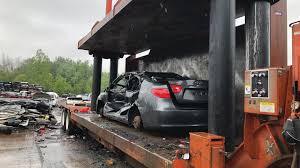
Automobile Recycling is the only thing to get rid of old Vehicle which has not been in use for a more extended period or are at the end of their life. Vehicle Deregistration is a part of Automobile recycling as the vehicle whose registration period is over and cannot be used further is sent for recycling. Out of these Deregistered Vehicles, parts of the vehicles are reusable or can be used further and are removed and sent for further selling to the spare parts dealers and the rest of the parts and the body of vehicles are sent off to the recycling units.
Automobile Recycling Industry
Auto Recycling has really been around for a long time, yet has ascended to fame these days because of broad ecological publicity worldwide. The car recycling industry basically manages what we consider garbage and scraps. This industry helps in giving work to many individuals and has likewise impacted the market and innovation-driven businesses to advance to stay aware of the imaginative improvements in the innovation of vehicles and their assembling methods.
What is the Process of Automobile Recycling?
Auto recycling is the destruction of a vehicle's extra parts and other metal items and materials to recuperate for Recycling. Here is the cycle on the most proficient method to do auto Recycling:
Stage 1: Take your vehicle to an ensured car recycler. Have the vehicle's condition, model, and other fundamental subtleties inspected. Then have it examined for parts that can be reused.
Stage 2:The vehicle is then depleted of liquids for reuse. Recuperated oil and gas can be utilized to fuel business and worker vehicles and other organization facilities, and reused radiator fluid can be sold for reuse to clients.
Stage 3: The vehicle is then destroyed for parts like gas tanks, radiators, motors, transmissions, and tires that can be reused. The things are then cleaned and tried for resale to customers. It's additionally critical to eliminate different parts like the battery, air sacks, reactant converters,mercury-containing switches, and parts that contain lead since they could be unsafe.
Stage 4: In the wake of eliminating all recyclable pieces of the vehicle, the leftover part is then stored. If the economic situations are positive, the remainder of the vehicle is then crushed and shredded.
Stage 5: The shredded metals are then arranged and reused to make new vehicles and different items. Different parts that are eliminated like glass, plastic, and material can likewise be offered to organizations that recycle these materials to shape new items.
What are the Benefits of Automobile Recycling?
Some of the Benefits of Automobile Recycling are:
Saving Environment: Recycling vehicle utilizes less energy than assembling new steel and can assist with safeguarding regular assets for longer. Creating new steel requires consuming a lot of coal, which can deliver ozone-harming substances into the environment and add to contamination. Recycling requires significantly less fuel and consequently has less of a natural effect
Reduce Landfills: At the point when vehicles and their parts are recycled, they don't need to go into landfills, and that intends that there is less effect on the climate and less possibility of synthetics and different poisons defiling nearby soil.
Help in the Economy: Numerous organizations rely upon recycled steel which is more affordable than creating new steel. Giving a wellspring of steel that can then be exchanged to organizations can assist with guaranteeing their endurance and keeping their items reasonable to purchasers.
Reduces Mining: Decreases the need to Mine for new steel that can be a major natural poison as well as hazardous to nearby untamed life. Steel mining can cause land disintegration and drain contaminations into the dirt and has countless long-haul impacts on the nearby climate.
Read Our Other Blogs to Know More about Vehicle Deregistration or Automobile Recycling
0 notes
Text
All About Metal Recycling
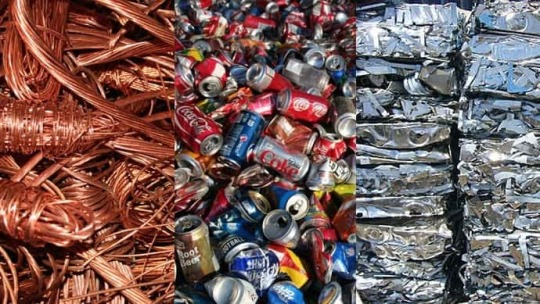
What is Metal Recycling?
Metal Recycling is the Best practice to save the environment and eliminate landfills. Recycling metals is an all the more monetarily and naturally practical method for getting and using metals as it utilizes less energy than metal creation. Furthermore, metal can endure persistent reusing without losing quality, making it a well-known region for organizations to study while directing a natural waste review. All ferrous metals from iron to hardened steel can be reused, as well as non-ferrous metals like copper, zinc, and aluminum, making it simple for organizations to package salvaged material together for assortment.
The benefits of Metal Recycling Are:-
Economical Benefits
Conserve Natural Resources
Reduce Energy Consumption
Other Environmental Benefits
What are the types of Recyclable Metal?
There are two main types of Recyclable metal
Ferrous Metal - Basically Ferrous Metal is magnetic in Nature and has a high tensile strength which makes them ideal for construction The most widely recognized ferrous metals are solid metal, fashioned iron, amalgam steel, and carbon steel, likewise alluded to as underlying steel. Iron originates before steel by many years. The last option is a composite, developed by adding the previous with carbon. Tractable, malleable, tough, and solid, iron is a weighty yet delicate material, with high warm conductivity. However generally, as far as use, iron has been supplanted by its posterity, steel, a harder metal.
Non-Ferrous Metal- Non-ferrous metals have, as well, been utilized starting from the beginning of civilization. Essential instances of non-ferrous metals are copper, aluminum, nickel, zinc, lead, and tin, in addition to valuable metals like gold, silver, platinum, and palladium. Non-ferrous metals enjoy upper hands over ferrous metals since they are lighter in weight and more pliable.
Aluminum, for example, is lightweight and can be handily projected, manufactured, machined, and welded. Airplanes are fabricated with aluminum, as are bumpers, outlines, cylinders, radiators, and like parts utilized in building automobiles, trucks, boats, and bicycles.
Copper's flexibility, pliability, and high conductivity make it an important metal in sheet material, course, lines, sculptures, and the electrical business as wire and different conveyors. Zinc is most generally used to stir the defensive covering of iron or steel to forestall rust.
The creation of combinations with ferrous and non-ferrous metals is a typical practice. Chromium blended in with steel makes hardened steel, giving expanded strength and giving it consumption opposition. Other combinations are broadly used to lessen material expenses, and others to make lighter-weight material.
What is the use of Metal After Recycling is Done?
Scrap Metal, for example, aluminum steel, metal, copper, and press can be reused more than once to make new items. These new items are utilized in various ways. Some are 'resurrected' as different things yet some might return as the similar items they began as.
Steel is tracked down in ordinary hardware and numerous apparatuses, from vehicle bodies to white products like clothes washers. Since there isn't a cutoff on the times' steel can be reused, it very well may be utilized again to make the above things and that's just the beginning. Your cooler might try and be produced using reused steel! Reused steel can make bike outlines, pipes, train tracks, and significantly more!
Copper mining is exorbitant and utilizes a ton of energy. It's tracked down in the design of most homes and properties and is sought after because of its recyclable purposes. Copper is flexible and when reused can be utilized for anything; from plumbing lines to guttering and electric wires.
Here are only a couple of astounding purposes of reused metals:
Transport - Reused metals are a significant component in the vehicle business, being utilized in building streets, tracks and in any event, for the actual vehicles; roughly 25% of the body of a vehicle is produced using reused metal. Planes use aluminum instead of steel and staggeringly, planes utilize a huge extent of reused aluminum (80% of the casing). Train tracks are generally produced using reused steel as well - which is particularly helpful in view of its expanded strength.
Home Decorations - Metal goods are usually produced using reused metals. The metal can be broken down into anything that the structure required and reused to look spic and span. All that from table tops utilizing enormous clock faces, seats framed from vehicle hats, and dressers produced using plane entryways
Packaging Material- Recycled metals are more often used in developing food packaging and other packaging materials.
What is the Need for Metal Recycling?
Despite the fact that there are a few motivations to reuse, the most significant and essential one is to track down an option in contrast to regular assets. It diminishes the need to work with virgin metal, further saving coal and iron mineral, which are utilized to deliver metal. As per a report, coal represented 43% of worldwide ozone-depleting substance emanations in 2010. Thus, assets, for example, coal should be considered in light of the fact that their burning is a significant reason for an Earth-wide temperature boost. It is likewise realized that most recyclable materials come from modern or business sources. These materials commonly go through reusing framework without numerous issues and are reused into the spotless, top caliber, item grade items that are utilized as feasible substitutes for virgin materials everywhere.
All in all, I might want to call attention to that reusing is the main way for organizations to keep working and secure the eventual fate of the metal assembling industry. Reusing is a straightforward and successful method for showing corporate obligation, and recyclers know about the business' public insight.
0 notes
Text
Why Automobile Recycling is getting Popular In Delhi?

Automobile recycling in Delhi has become a popular recycling activity for the past some time as the Delhi government passed the order for old vehicles that the vehicles whose registration period is over are to be Deregistered in Delhi to save the environment and also it reduces the accident chances. Also, the owner of the deregistered vehicle has no other option than to sell it to a recycling unit and switch to a new vehicle automobile recycling in Delhi helps in reducing greenhouse gas emissions, and also it full fills the needs of multiple resources to produce new goods and save multiple natural resources from getting exhausted as it will help in metal recycling, plastic recycling, etc which will further use in producing new goods.
After this initiative of the Delhi government, every month around 10 tons of Automobile recycling is done in Delhi which results in lower pollution and rate of accidents. Automobile recycling is not an easy process as it looks like it's not just crushing the vehicle and giving it a shape of a cube it requires a whole lot of machinery and experienced employees who knows everything about automobile recycling.
Automobile Recycling in Delhi Offers Multiple Benefits Like
Helps in reducing pollution and saving the environment
Helps in reducing Landfills which saves soil and groundwater from getting polluted
Conserve natural resources
Automobile Recycling avoids the excessive use of energy
Process of Automobile recycling in Delhi
First of all, a detailed inspection of your vehicle is done before sending it for recycling in that inspection all the parts are checked thoroughly so that they can be used further in other vehicles or not if the parts passed the inspection process then those parts are stored separately and sold to the second-hand car parts dealers.
Dismantling of parts - All the parts are Dismantled and stored separately till further processing which includes all the metal and plastic parts dismantled and stored whereas batteries are stored in a dry place so that it doesn’t harm anyone.
Removing of fluid - In this process, all the fluids are removed from the vehicle and disposed of properly as they are toxic and can harm humans as well as nature and wildlife these fluid includes engine oil, coolant, and Battery fluid.
Shredding and crushing - In this process, the body and other parts of the vehicle are crushed and shredded into small pieces by the machinery under the supervision of experienced employees. So that it doesn't require much space and can easily convert into a new shape.
Selling off parts- in this process, all the parts which are received from the vehicle for further use in other vehicles are sold to the dealers for further selling to vehicle owners for their use.
Interested in Automobile recycling?
Sell or donate your old vehicle which is at the end of its life to Neshorecycling we are one of the biggest automobile recyclers in Delhi. We are a 55 years old recycling group in India and currently one of the biggest recyclers in Delhi who recycles metal plastic, lithium-ion batteries, etc we strongly believe in saving the environment in 3 ways: Recycling, Re-using, and Reducing thus creating a sustainable world for future generations.
#Delhi car Deregistration#petrol car deregistration in Delhi#diesel car deregistration in Delhi#car deregistered in Delhi#Automobile recycling#automobile recycling in delhi
0 notes
Text
Recycling
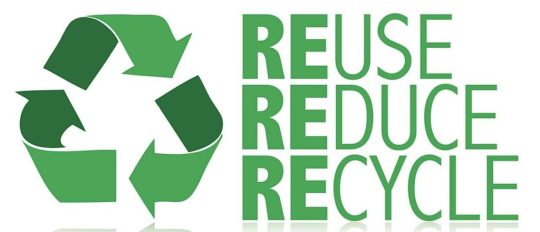
The processing of making new goods from old scrap or used materials that are thrown away or not in use for a longer period of time and occupying space and harming the environment is known as recycling. Basically, Recycling is done to save energy which is used to develop new goods like metal from ore and plastic from pallets, etc. Manufacturing new materials from raw ore require a whole lot of energy as compared to developing goods or materials by recycling the old ones.
Recycling is the key component of the waste hierarchy which includes reducing, reusing, and recycling. It not only helps in saving the environment but also helps in economic development
Typically different types of material can be recycled like metal, plastic, glass, wood, paper, etc these materials are recycled to the increasing demand for this material which is developed using scarce resources like mineral ores, coal, petroleum, oil, and natural gas. Recycling also helps in reducing the solid waste deposited in landfills but also helps in reducing the pollution of air, water, and land resulting from waste disposal.
Common Recyclable Materials Are
Metal Recycling - Metal Recycling is the process of recycling various scrap metals without affecting or degrading their properties. Metal recycling helps various industries to get raw materials to manufacture new goods like Automobiles, crockery, packaging, and many more. Metal Waste recycling allows us to preserve natural resources.
Plastic Recycling - Plastic recycling is done to get rid of the plastic waste which remains as it is on the surface for several years as plastic waste doesn’t decompose easily it will also harm the environment and natural species also plastic is recycled to develop new products like toys, household products, automotive products, etc
Paper Recycling - Every tone of Paper recycling can save up to 17 trees, two cubic yards of landfill capacity, and 4100 kW/hours of electricity also 70% of every is saved if the paper is recycled instead of made new.
Lithium Ion Battery Recycling-Lithium Battery recycling is the only way to reserve minerals like cobalt, and graphite lithium because these minerals are used to make lithium batteries. Lithium Ion batteries are used over alkaline batteries If these lithium Battery doesn’t manage properly then they could cause harm to human life and the environment.
Some of the Benefits of Recycling Are:
Protect Environment and Wildlife
Saves Natural resources
Saves money
Helps in developing new products from old ones
Helps in Reducing the amount of solid waste deposited in landfills
Create Jobs
Most Common Process of Recycling
Recycling of every material is almost done in a similar way of steps which include collection, sorting shredding, etc
Collection - In this process, all the scrap or waste material that is to be recycled is collected from various sources like from bins which are placed in public places for their convenience and from the waste or scrap collectors who collect this material for recycling
Sorting - This is done after the collection of all the material is done in this process all the material which is collected is now being sorted on the basis of their type like which materials are recyclable or which are not and also the waste particles are being removed from the material in this phase only
Shredding- After collection, sorting is done next step is shredding in this process all the material after sorting is transferred to the shredders which is having cylindrical bodies with blades inside it that shreds the material into small pieces or chunks for easy processing of that material.
#Metal Recycling#Scrap metal#Metal Waste Recycling#scrap metal recycling#Scrap Yard#plastic recycling#plastic waste recycling#waste plastic#plastic scrap#plastic recycling plant#Lithium-ion Battery Recycling#Lithium Battery Recycling#Lithium battery Recycling plant#lithium-ion recycling#lithium battery waste
0 notes
Text
Metal Recycling
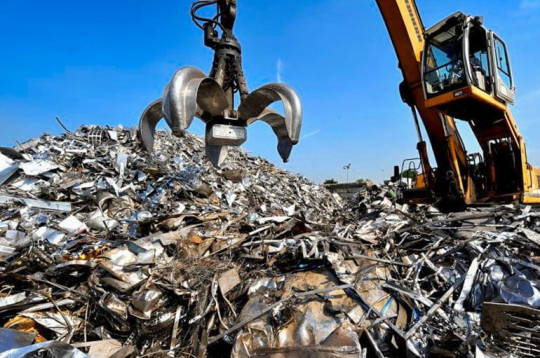
Metal Recycling
Metals are the most versatile resources as compared to others they are the most valuable resources which use to develop other goods like tools electronic appliances, vehicles, and more. Metals like steel scrap, aluminum scrap, Cooper scrap, gold silver brass and more are having different properties that can be recycled without getting their properties deteriorated. Recycling Scrap metal is more economical and environmentally viable than extracting new metals.
How is Metal Recycling Done?
Metal recycling is a process of converting metals into the use of full goods. Metal recycling is divided into 6 stages. After all these stages metal is ready to rebuild useful goods.
Collection: In this process, all the metals which can be recycled are collected by a recycling unit or plant simply by putting a recycle bin where they can collect items from the users.
Sorting This is the second step of recycling in this step all the metals which are collected are now sorted on basis of their size and type. And also on their material type like if scrap metal is surrounded by a plastic coating then also it is recyclable.
Processing and shredding: In this step, scrap metal is squeezed by the machine so that it doesn’t occupy much space, and also after sorting scrap metal this metal is shredded into tiny pieces for further processing.
Melting: After the metal is shredded into tiny pieces then this metal is transferred to the furnace which is specially designed based on the type of metal for melting. The process of melting requires a large amount of energy but the melting of recycled metal requires low energy as compared to the energy required to cast a new metal.
Purification: After the melting process next step is the purification of the metal which is done by different methods. Purification is done to remove the impurities from the melted metal so that it can easily be transformed into new goods. One of the processes of purification is electrolysis or using a powerful magnetic system to separate the metal from other material.
Solidification: Last and the final step of metal recycling is solidifying the metal the molted metal is transferred to a cooling station on a conveyer belt after that they are solidified in different shapes and then this metal is sent to different manufacturers further making new goods.
Major advantages of Scrap Metal Recycling
Conservation of Environment: Recycling helps in the conservation of the environment by giving multiple benefits like reducing pollutants, harmful substances, etc. Recycling goods takes lower energy compared to processing new goods. Recycling of metals will lower the amount of mining new ore for metal casting as ore mining disturbs the environment in many ways like soil and water contamination, air contamination, habitat loss, etc
Conservation of Energy: Recycling metals uses less energy compared to the energy Exhausted in manufacturing new metals from the ores. Different types of metal require different energy steel recycling uses 65% less energy than developing new steel same aluminum recycling uses 80% less energy than developing new aluminum. This means instead of developing new metals recycling old metals helps in saving a lot of energy.
Not Affect Properties: some metals have the advantage that they can be recycled again and again without losing their properties. But some lose their properties and decrease as time passes. This only means that instead of exhausting resources and time we can easily recycle those scrap metal which doesn’t lose property thus it will help in saving the environment and resources.
Free up space: Recycling scrap metals can help in making space at your house office and other places by taking out waste metal or old metal home appliances and selling them recycling by this you get two benefits you get a free space to store things and also get paid for your old scrap.
There are different Metal Recycling yards or companies which one to choose is the only thing that comes to mind. Nesho Recycling is the name which is a 55 years old and well-known recycling group in India. We are the third generation in the business heading with new passion and dedication towards the new heights of economies. We sensed and explored the need for recycling hubs in India to fight the polluting components Metals, etc., that are harming our natural environment. We at Nesho strongly believe in saving the environment in 3 ways: Recycling, Re-using, and Reducing thus creating a sustainable world for future generations.
0 notes